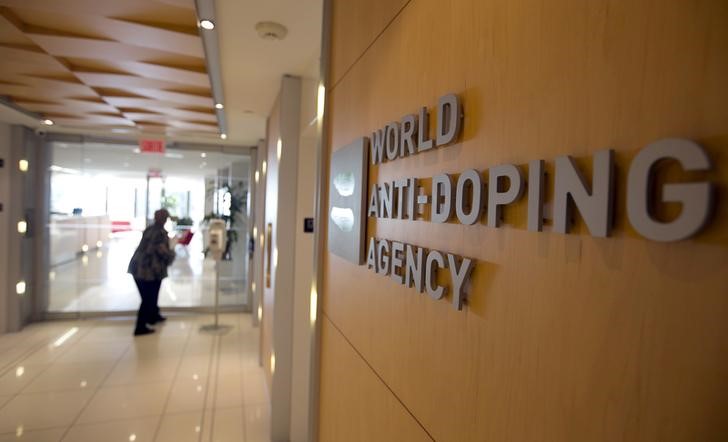MOSCOW (Reuters) - The World Anti-Doping Agency (WADA) on Wednesday urged Russia to stop shifting blame for its doping scandals after a deputy prime minister from the country partially blamed WADA for the problems.
Russia's athletics federation, Paralympic committee and anti-doping agency RUSADA remain suspended over WADA reports that found evidence of state-sponsored doping in Russian sport. Moscow is pushing hard to get those suspensions overturned.
Deputy Prime Minister Vitaly Mutko on Tuesday said WADA should have been held responsible for Grigory Rodchenkov, the former head of Moscow's discredited anti-doping laboratory.
Rodchenkov, identified in a 2015 WADA report as an 'aider and abettor of the doping activities', revealed a scheme for covering up Russian competitors' positive drug samples at the 2014 Winter Olympics.
Mutko, the former sports minister, told the R-Sport news agency that Russia had acknowledged Rodchenkov's violations of anti-doping regulations and fired him.
"Before that it (WADA) should have taken responsibility for this man, given that it licensed him and granted him the right to work," Mutko said.
"It controlled him and now suddenly the government is responsible."
In comments e-mailed to Reuters, WADA dismissed Mutko's assertions.
"WADA would expect the Russian authorities to take responsibility for this deliberate system of cheating that was uncovered by the McLaren Investigation – as is stipulated within RUSADA's Roadmap to Compliance – rather than continually shifting the blame onto others," WADA spokesperson Maggie Durand said.
Durand said Russian authorities had appointed Rodchenkov to head the laboratory in 2006 and that laboratories were "responsible for applying for, obtaining, and maintaining WADA accreditation."
WADA last month called on Russian authorities responsible for anti-doping to publicly accept the findings of the McLaren Investigation, which uncovered widespread state-sponsored doping at the Sochi Olympics.

A public acceptance of the report -- which found that more than 1,000 Russian competitors across more than 30 sports benefited from an institutional conspiracy to cover up positive drug tests -- would contradict the Kremlin's persistent denial of the state's alleged role in the widespread use of performance-enhancing drugs.